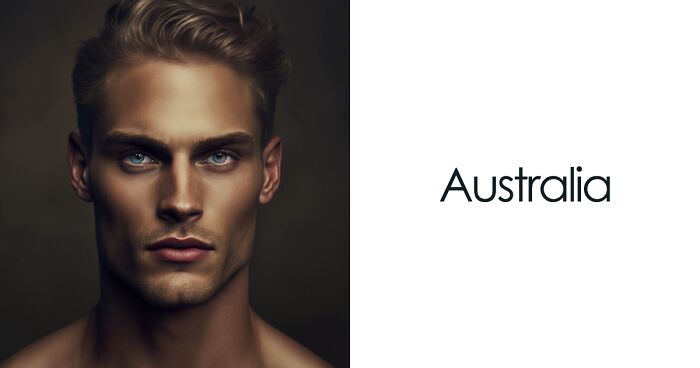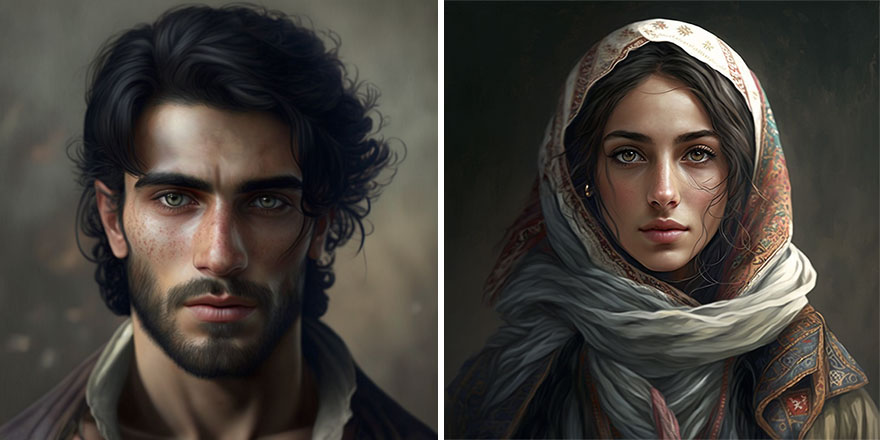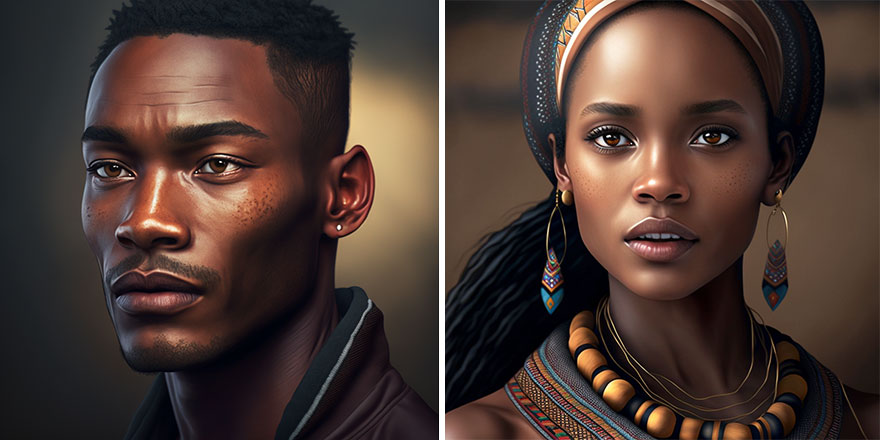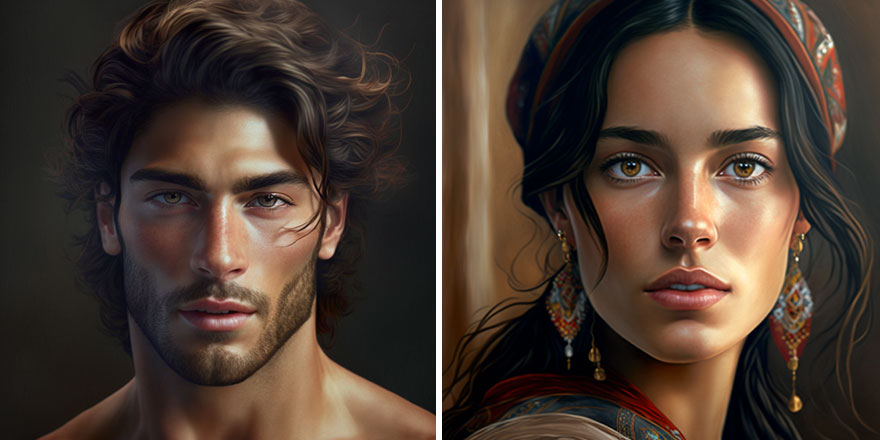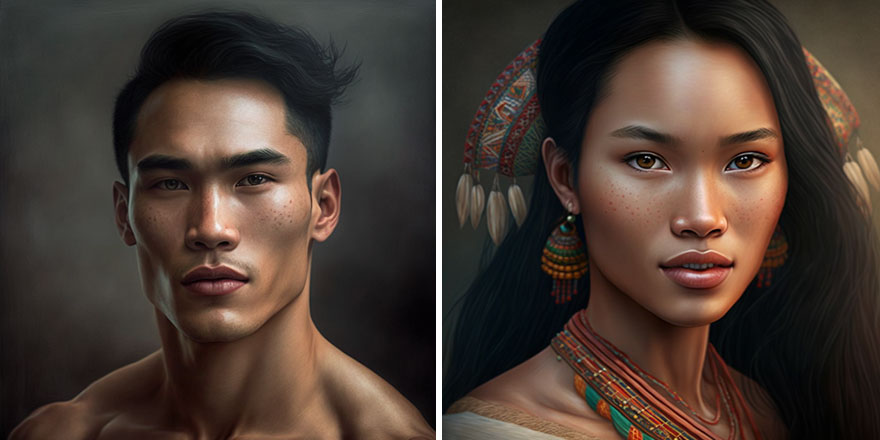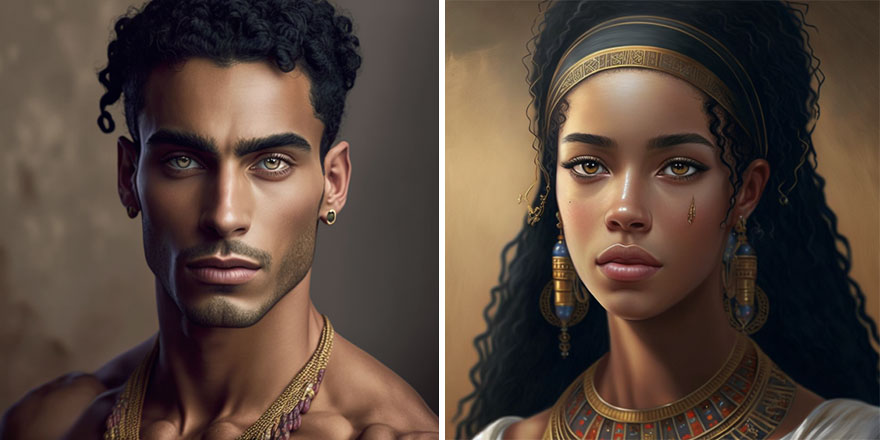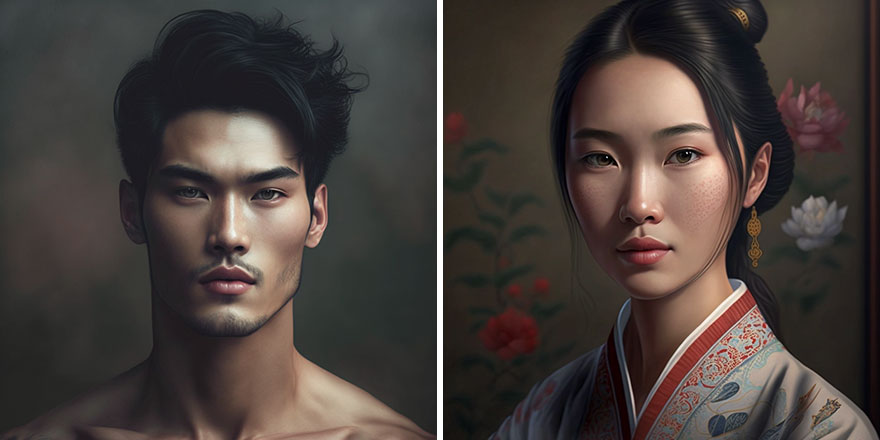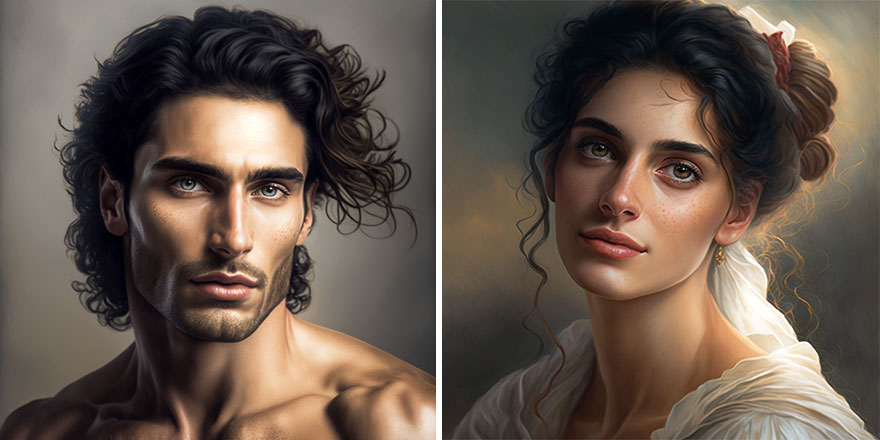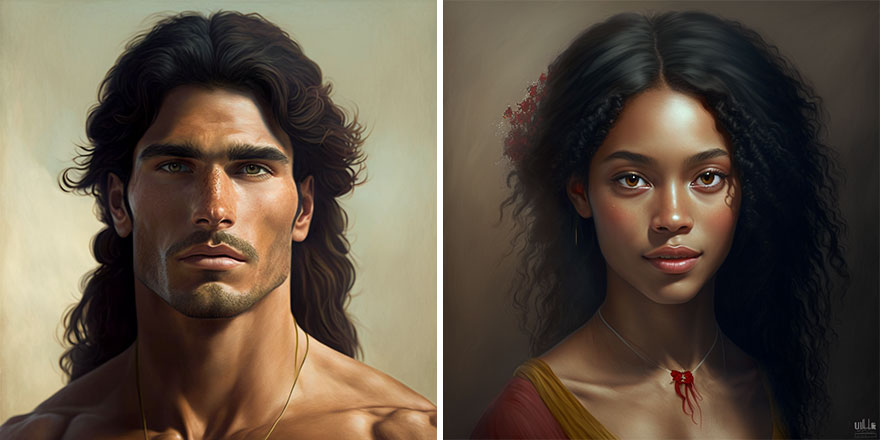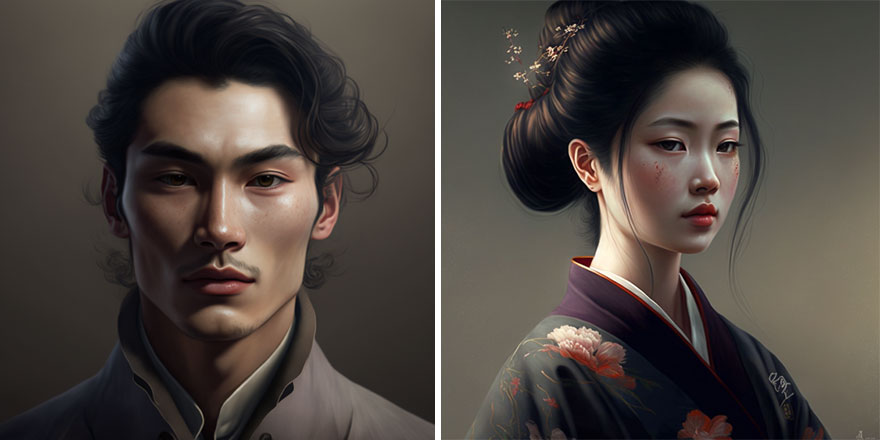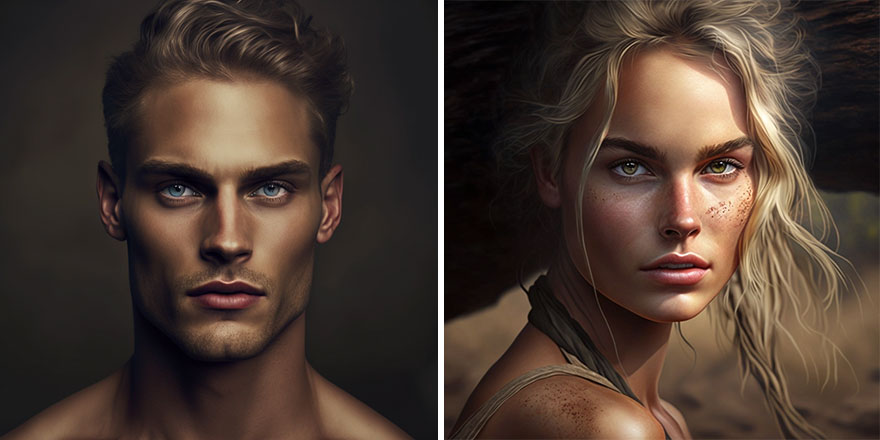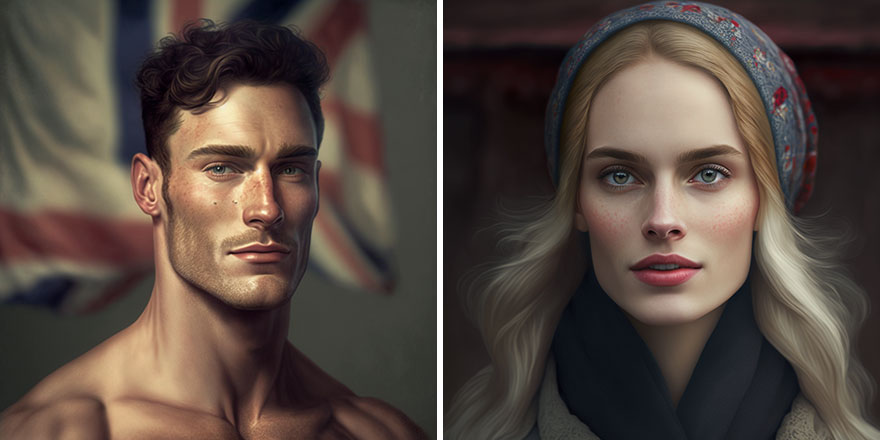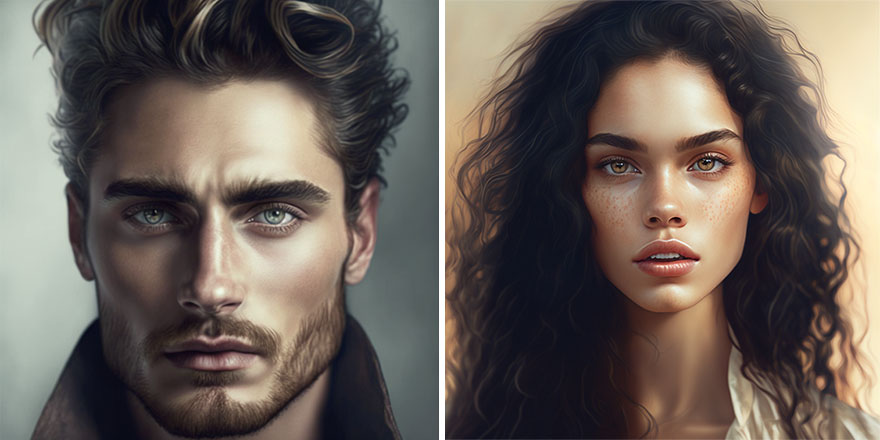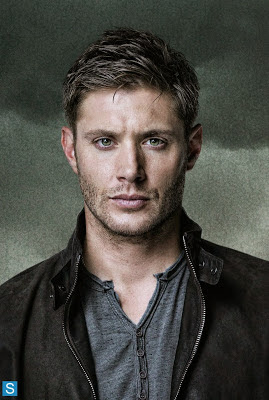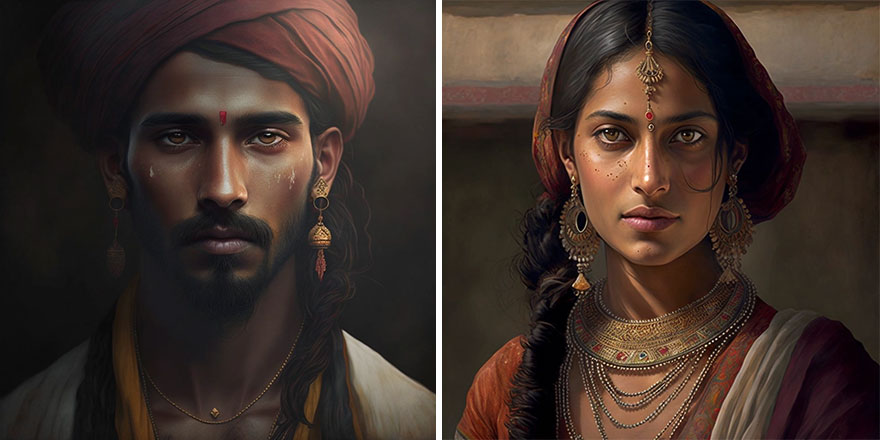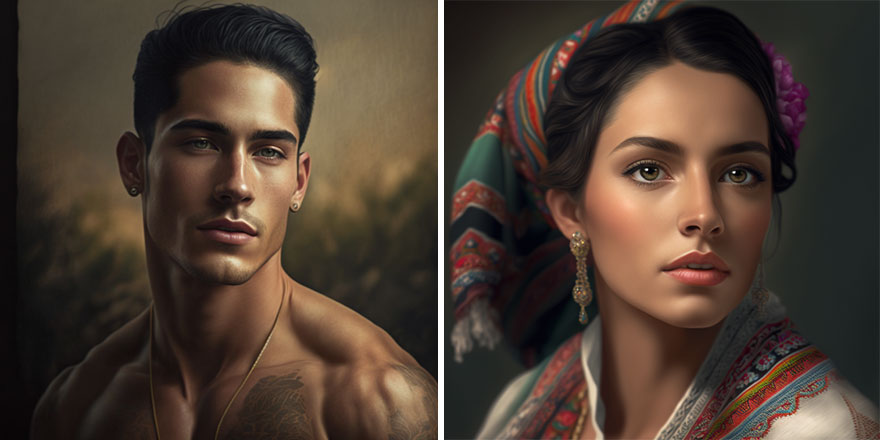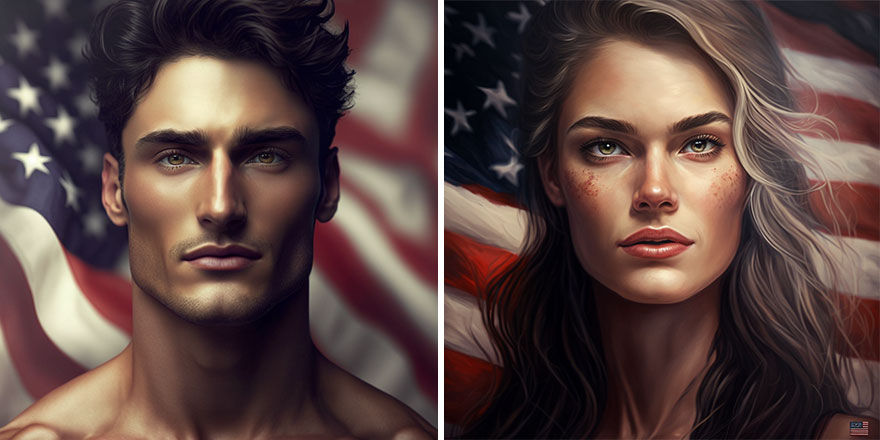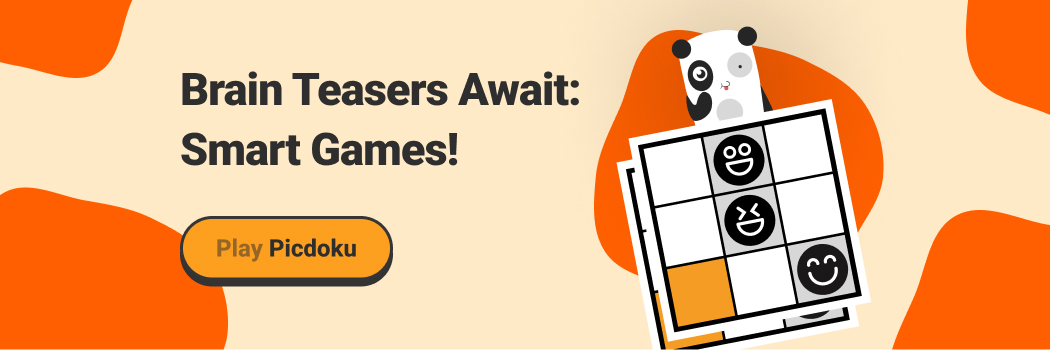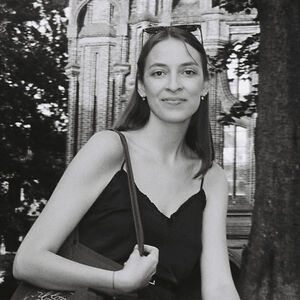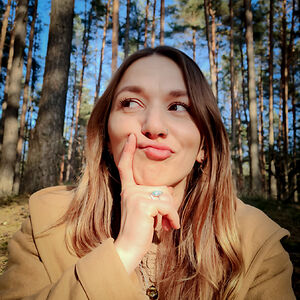A remarkable artificial intelligence model has given what it believes is the definitive standard of beauty for men and women in various countries around the world. Research from health and beauty firm NordChem used an AI tool called MidJourney to render beautiful faces, giving an insight into how data pulled from across the web comes together to create beauty standards.
In a statement, Samantha Haines, Marketing Manager at NordChem Health & Beauty, said: “The goal of this project was to better understand the standards of beauty and how such views vary around the world. While to us, beauty means so much more than how someone looks, the style of their hair, or even the size of their muscles, this AI is an incredible tool that gives us an insight into commonly held perceptions of beauty and perfection in a variety of countries around the world. We hope people are interested to see the images.”
What is the Ideal Face, According to AI?
The AI took user-generated image ALT as well as hashtags from a number of sources such as Instagram, Facebook, and other social media outlets to draw images that match the description it has been given. Asked to draw the most beautiful people from different countries, the program offered images for men and women from 14 different countries around the world.
On the list were the UK, Spain, the USA, Australia, China, Colombia, Egypt, India, Italy, Japan, Mexico, Philippines, South Africa and Syria. It also offered a composite for the whole world, where it pulled together data to create what potentially would look like the most beautiful face in the world.
Symmetrical facial features, including balanced lips and eyebrows, along with healthy skin tones and flowing hair, collectively convey a sense of harmonious beauty. Even if beauty is a subjective matter, look at how the image engine has generated what’s deemed the most beautiful face and get an analytical idea of beauty across the globe.
This post may include affiliate links.
Syria
South Africa
Spain
Philippines
Egypt
Grandpa didn't have that much chin and his hair was almost straight, otherwise fairly close to how he looked in the wedding pics.
China
Italy
She looks like a renaissance painting. He looks like a Calvin Klein model.
Colombia
I think that the girl is super pretty, I love the bags under her eyes because it makes her seem real.
Japan
No wonder my grandmother pitied me, being half Japanese, and me with big eyes, big mouth and darker skin--the total opposite of the ideal Japanese.
Australia
United Kingdom
World
India
Mexico
If I had to guess his nationality, Mexico would not immediately come to mind
United States
I love how the AI knows that Americans have to have their flag in the background
Popular Questions About AI Answered
The quest to understand what constitutes the face of the most beautiful woman or man through AI has been a fascinating journey. AI has helped improve our understanding of global beauty standards by analyzing facial patterns across various countries. In conclusion, let’s cover the most popular questions about AI.
How Does AI Generate Fake Faces?
AI generates fake faces using a machine learning model called a generative adversarial network (GAN). A GAN consists of two neural networks that compete against each other: a generator and a discriminator.
The generator tries to create realistic-looking faces from random noise. In contrast, the discriminator tries to distinguish between real and fake faces. The generator learns from the feedback of the discriminator and improves its output over time. The result is a collection of counterfeit looks that are very hard to tell apart from real ones.
Still, AI-generated faces can also be misused for scams, fraud, and misinformation. Therefore, it is essential to know the potential risks and ethical issues of using them.
How to Make Realistic Faces With AI?
There are different ways to make realistic faces with AI, depending on the input and output you want. Some common methods are:
- Text: This method lets you create realistic human faces from text prompts. You can describe the gender, age, hair color, body type, facial features, and other details, and the AI will generate a matching visualization for you.
- Photo: This method lets you create realistic human faces from a reference photo. You can upload a photo of a person, and the AI will generate a similar face with different variations and styles.
- Enhancer: This method lets you improve the quality and resolution of a low-quality or pixelated face photo. You can upload a blurry or distorted face photo and the AI will enhance it and make it more clear and realistic.
What is the AI That Makes Realistic Faces?
AI tools can create good quality, realistic AI-generated faces from various inputs, such as text descriptions, pixelated images, or reference photos. It can turn any pictures into convincing AI-generated, most beautiful faces in finer detail than ever.
- Fotor AI face generator: This online tool lets you effortlessly create lifelike human faces. Simply enter text prompts or upload a photo, and watch Fotor generate detailed and realistic AI faces for you.
- DALL·E 2 AI image generator: This AI system developed by OpenAI can create realistic images and art from a description in natural language. It can combine concepts, attributes, and styles.
Is There a Free AI Face Generator?
Some free online tools can generate realistic or stylized human faces using AI. For example, you can try:
- AI face generator: This free online tool lets you create lifelike or youthful-looking faces from text prompts or reference photos. You can customize the faces with different hairstyles, skin tones, accessories, and more.
- DALL·E 2 AI image generator: This free online tool uses descriptions in natural language to create images and art. It combines different concepts, attributes, and styles to generate unique faces.
- Zmo AI face generator: This free online tool lets you generate faces that resemble a person you upload. You can also choose from different variations.
Can we just desist with this AI "art" nonsense? None of the images are ever even remotely interesting. Instead, regardless of the subject, they are derivative, repetitious, and pretty much the opposite of real art.
and most of the time ai steals art 🤷♀️👽
Load More Replies...This is *not* art. Please please PLEASE stop putting AI "art" under digital art.
The base for all these faces is the same. Super square for the men and absolute baby faces for the women. If we actually want to see the different beauty standards for different countries, photographs of real people would be better.
Basically ai is saying Steve of Minecraft is the ideal man of the universe lmao
Load More Replies...Can we just desist with this AI "art" nonsense? None of the images are ever even remotely interesting. Instead, regardless of the subject, they are derivative, repetitious, and pretty much the opposite of real art.
and most of the time ai steals art 🤷♀️👽
Load More Replies...This is *not* art. Please please PLEASE stop putting AI "art" under digital art.
The base for all these faces is the same. Super square for the men and absolute baby faces for the women. If we actually want to see the different beauty standards for different countries, photographs of real people would be better.
Basically ai is saying Steve of Minecraft is the ideal man of the universe lmao
Load More Replies...
 Dark Mode
Dark Mode  No fees, cancel anytime
No fees, cancel anytime 




